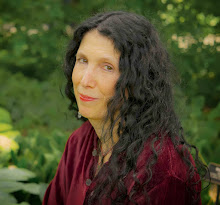 |
| Where genius creates |
 |
| Portrait of the writer lounging in the sun |
 | ||
| Who says writers can't have gleaming, gorgeous wood floors? |
Jessica Grose is an editor at Lenny, also the author of Love, Mom. Her latest, Soulmates is a smart, funny and intensely readable story about what unmakes--or remakes--a marriage, the trials of yoga, and so much more. I'm thrilled to have Jessica here. Thank you, Jessica!
I love the structure of the book, the way we hear from Ethan and then from Dana, and because I am always curious about craft, I want to know why you decided to do the book that way? This is your second book, and I also want to know if it felt harder or easier to do than your first?
Thank you! I decided to do the book from alternating
perspectives because I wanted to show how a relationship—particularly a
relationship that’s falling apart—can be interpreted so differently by each
participant. At first, you hear Dana’s side, and you think Jeez, Ethan’s a philandering prick. But then you hear Ethan’s side
of the story, and you start to empathize with him, and see how their worldviews
just became more and more incompatible as he becomes enmeshed in his yoga
world.
In some ways this book was harder to write. Logistically it was harder, because I wrote the first book before I had kids, and I wrote the second one after my first daughter was born. But I had more fun writing this one. When I wrote Sad Desk Salad, I was pretty insecure about the whole thing. Like: am I even allowed to write a novel? I’m a journalist, not a novelist, etc. etc. Once I had written and published a first book, I was more confident. I started thinking: Even if I’m a bad novelist, I’m officially a novelist now.
As someone who once walked out of a yoga class after being
told I “wasn’t challenging myself and what a shame” because I wouldn’t do a
headstand in my very first class—I don’t have kind thoughts about yoga. Do you?
I have complicated thoughts about yoga! I have enjoyed it,
particularly prenatal yoga, as there’s something really warm and communal about
being in a room full of other cranky ladies in your particular physical
condition. I really hate some of the sentiments yoga teachers express, which
can be a mishmash of faux Buddhism and something I think of as tea bag wisdom
(i.e., the saccharine, uplifting sentiments sometimes printed on the side of
tea bags). I know some people really get succor from what their yoga teachers
say, but I can’t help but roll my eyes so hard it hurts my sockets. There are
certainly yoga teachers out there who have studied Buddhism or Hinduism deeply
and have something wise to impart. But I’ve never experienced them.
The novel’s is hilariously funny—and in the smartest way
possible. Do you make yourself laugh
while you are writing, or is it serious craft time for you, instead?
I definitely make myself laugh, although that is so
cringeworthy to admit! Above all, I want my books to be entertaining. And if
I’m not entertaining myself, I probably won’t be entertaining my readers.
I have to ask about the ending—without giving anything
away—because it was so tragically hilariously perfect and it gave birth to what
I always call “the never ending story” where you wonder what is going to happen
to these people beyond the pages. Did
you always know this was how things were going to end up?
I knew that was what would happen to Dana, but what would
happen to Ethan changed a lot. And the way Dana got to where she ends up
changed dramatically along the way.
I’m fascinated by gurus or all kinds (there is a famous
story where Dennis Wilson was telling two girls he had picked up that his guru
was the Maharishi, and they said, “Oh, our guru is Charlie Manson.”) Why do you
think we are all so desperate to find our answers from anyone other than our
deepest selves?
Because getting answers from our deepest selves is difficult
and painful, and it’s a lifelong process. It’s much easier, especially if
you’re young, or you’re lost, to look to someone or something else to give the
answers to you. In some ways, Ethan just traded Dana for a yoga guru. Like when
they got married, she was always the Alpha and he just let her decide their
lives. And then when they stopped really connecting, he felt adrift and for
various reasons didn’t have the ego strength to chart a path for himself.
What’s obsessing you now and why?
American Heiress
by Jeffrey Toobin, about the Patty Hearst kidnapping. I love pretty much any
history of the early 70s (Brendan Koerner’s The
Skies Belong to Us, about how planes used to get skyjacked All. The. Time.
in the 70s, is also a favorite). These histories are particularly comforting to
read in this moment, because with the rise of Trump everything seems so crazy,
but then you read about the violence and social disorder of the early 70s and
you think, nope, not so crazy after all.
What question didn't I ask that I should have?
What question didn't I ask that I should have?
¯\_(ツ)_/¯


















